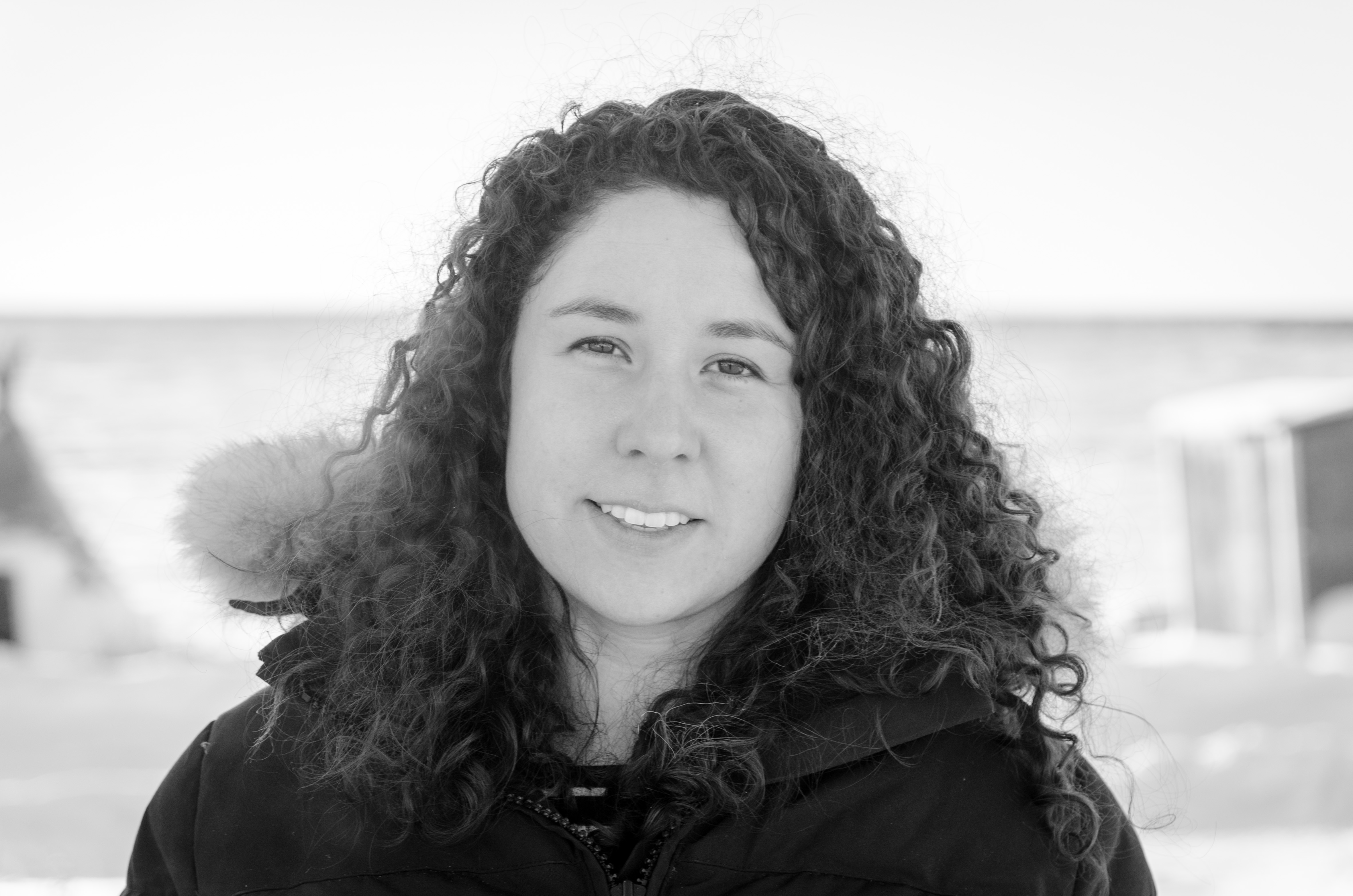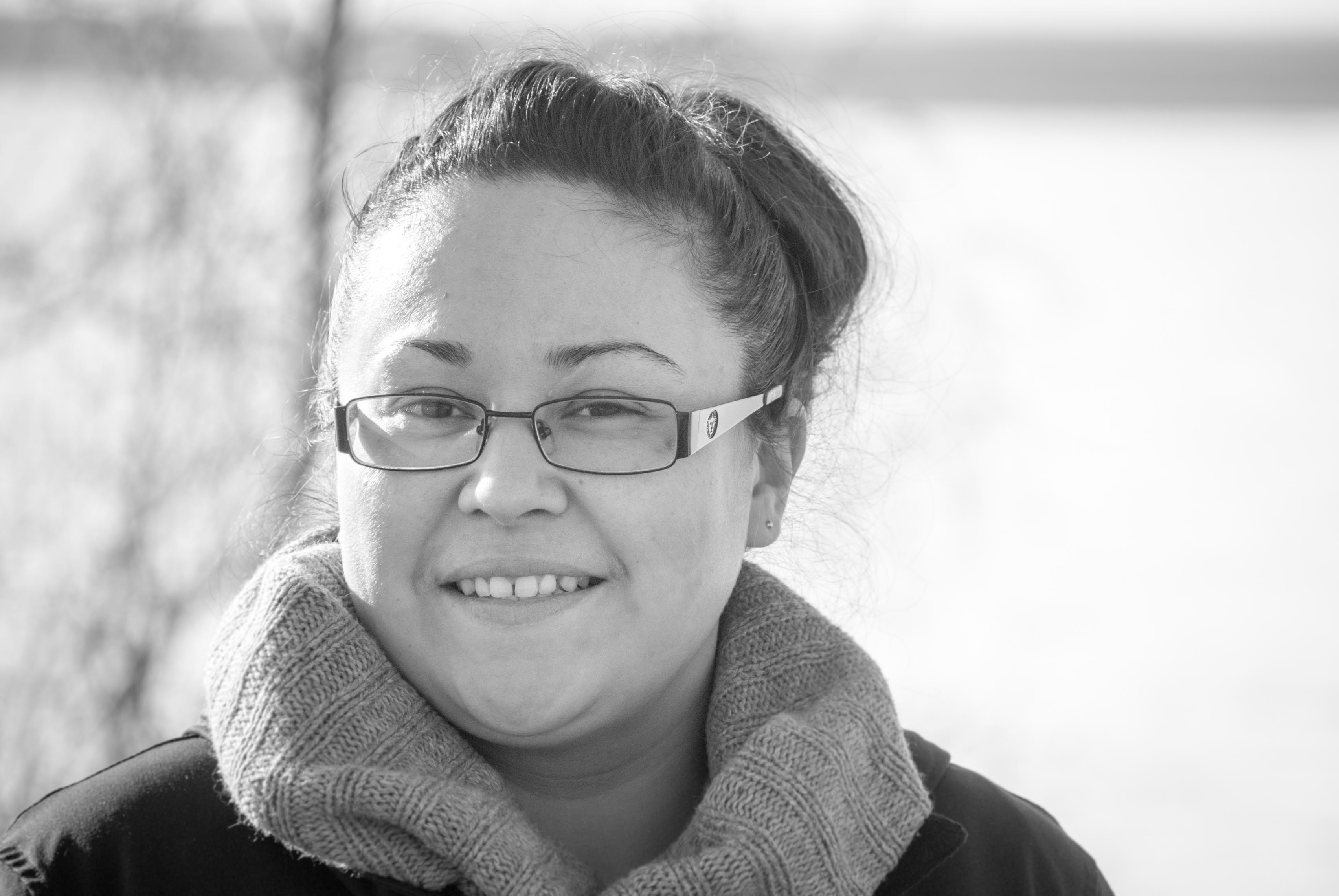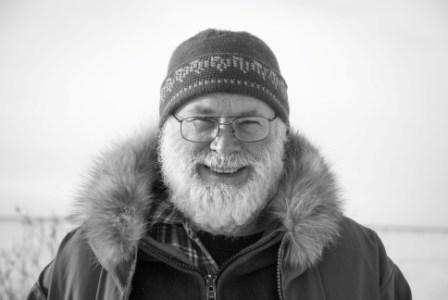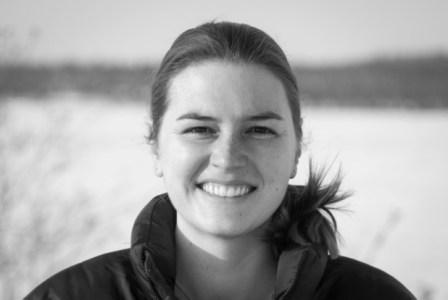Heather Sayine-Crawford



Stephanie’s experience also includes working for the Ekati diamond mine Environment Department as a summer student, a Renewable Officer with ENR as a summer student, the Lands Department of the Tłı̨chǫ Government as a Wildlife Coordinator, and several co-op internships while she was in University. These opportunities in the field inspired her passion for wildlife conservation and prepared her for her current job where she spends significant time outdoors, something she continues to enjoy. Her interests also include the importance of using Traditional Knowledge along with the western Scientific Knowledge. As an aboriginal woman, Stephanie takes pride in being able to use both paradigms and she is honoured to have the chance to work with many local hunters and harvesters as well as scientists from all over to collect knowledge that can be used to ensure wildlife will be plentiful for future generations. Stephanie is working with the Tłı̨chǫ Government as a Wildlife Biologist.
 A professional biologist, Richard was the Manager of Wildlife Research and Monitoring for the Sahtú Region with NWT Environment and Natural Resources prior to his retirement in 2014. From his roots as a trapper, naturalist, and graduate from the University of Guelph, Richard started his wildlife career with high arctic wildlife research in 1974. His extensive experience in the field of wildlife management stems from his work as a Wildlife Technician, Game Warden, Conservation Education/Resource Development Officer, Biologist, and Manager across Nunavut and the NWT. In 2007, the Fur Institute of Canada presented Richard with the Jim Bourque Award for his contributions to the traditional harvesting economy of the Sahtú Region. Richard remains active in his home town of Norman Wells.
A professional biologist, Richard was the Manager of Wildlife Research and Monitoring for the Sahtú Region with NWT Environment and Natural Resources prior to his retirement in 2014. From his roots as a trapper, naturalist, and graduate from the University of Guelph, Richard started his wildlife career with high arctic wildlife research in 1974. His extensive experience in the field of wildlife management stems from his work as a Wildlife Technician, Game Warden, Conservation Education/Resource Development Officer, Biologist, and Manager across Nunavut and the NWT. In 2007, the Fur Institute of Canada presented Richard with the Jim Bourque Award for his contributions to the traditional harvesting economy of the Sahtú Region. Richard remains active in his home town of Norman Wells.

Jean Polfus is a 2016 Liber Ero Postdoctoral Fellow (http://liberero.ca). Her Liber Ero research project will focus on developing interdisciplinary communication tools that can be used by Sahtú communities to facilitate cooperative long-term problem solving, improve research, and affirm the value of community caribou stewardship. Jean recently completed her PhD at the University of Manitoba conducting genetic and traditional knowledge studies on caribou populations in partnership with the Ɂehdzo Got’ı̨nę Gots’ę́ Nákedı and five Ɂehdzo Got’ı̨nę in the Sahtú Region, Northwest Territories, Canada. Her project built a comprehensive understanding of the identities and relationships among caribou populations and Dene people in order to inform and prioritize management efforts. She is committed to an approach to conservation that respects the lives and experiences of people that depend on natural resources for their livelihood, facilitates cooperative long-term problem solving, improves the performance of ongoing research, and affirms the value of community caribou stewardship. Learn more here: http://cari.cc.umanitoba.ca/jeanpolfus/
Jean studied evolutionary and environmental biology at Dartmouth College in New Hampshire. In 2008 Jean developed a Master’s project through a unique collaboration between the University of Montana, the Taku River Tlingit First Nation, and Round River Conservation Studies. Her research supported the management initiatives of the First Nation by using an innovative combination of modeling approaches to determine the cumulative effects of human developments on woodland caribou, including the development of robust habitat models based on the traditional knowledge of the First Nation. Jean has a strong interest in art which complements her academic career. She approaches both art and science as explorations of the natural world as they each arise out of the process of noticing patterns in behavior, space, and time. Jean is an avid cross country skier and competed at an elite level at Dartmouth College.